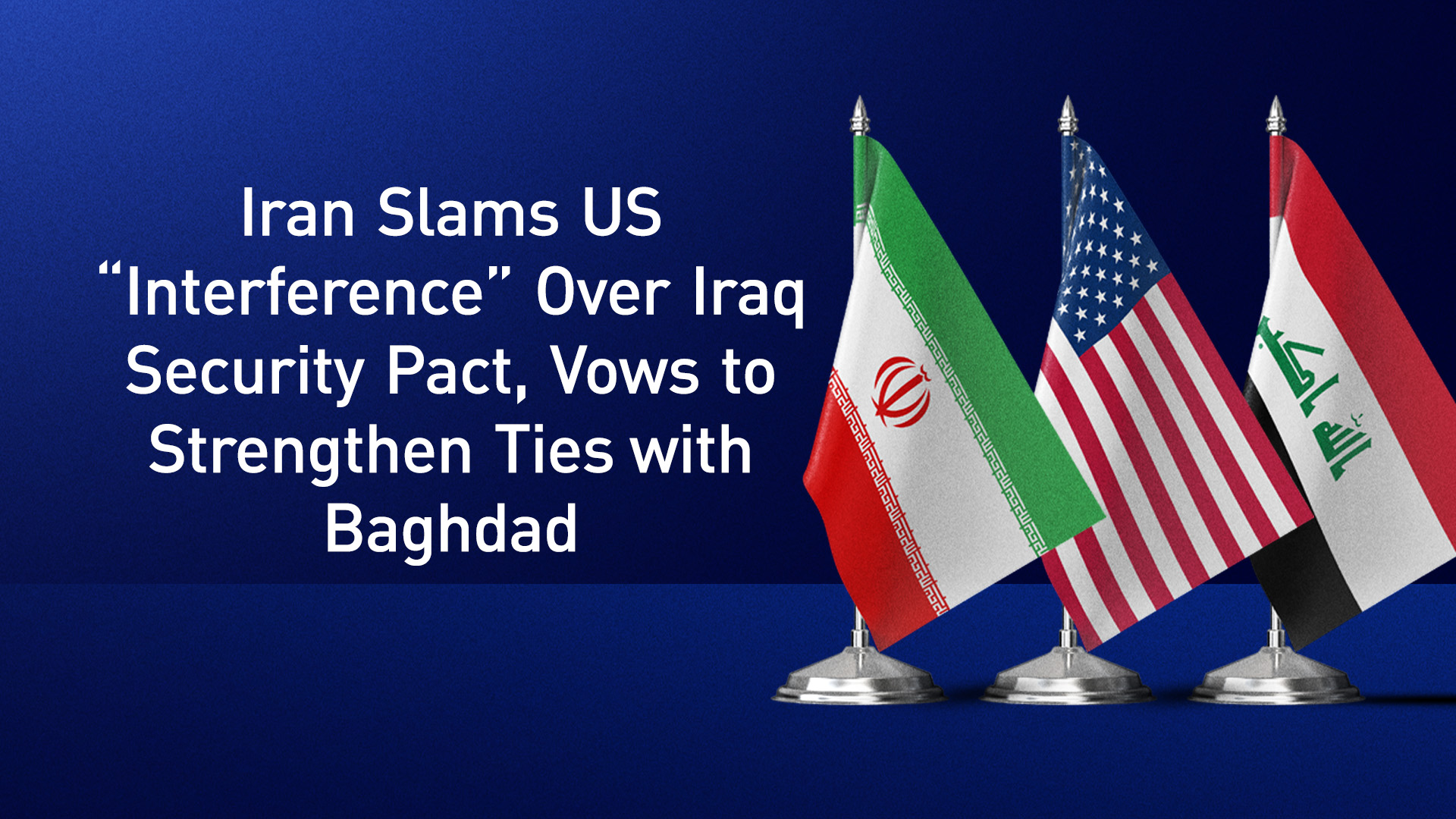Iran Slams US “Interference” Over Iraq Security Pact, Vows to Strengthen Ties with Baghdad
The embassy accused Washington of an “unacceptable intervention” in the affairs of two independent neighboring states, warning that such positions violate the principles of the UN Charter and international law.

ERBIL (Kurdistan24) — Iran’s embassy in Baghdad on Wednesday condemned what it described as “interfering remarks” by the United States over a newly signed security memorandum of understanding between Tehran and Baghdad, according to the state-run IRNA news agency.
In a statement, the embassy criticized comments from a US State Department spokesperson opposing the agreement, saying they reflect “ongoing efforts by American decision-makers to sow division among neighboring and Muslim peoples.”
The embassy reaffirmed the “shared determination” of both countries to deepen relations based on good neighborliness and mutual respect, calling it a guarantor of peace, stability, and security along their shared border and in the wider region.
It further accused Washington of an “unacceptable intervention” in the affairs of two independent neighboring states, warning that such positions violate the principles of the United Nations Charter and international law, which are grounded in “cooperation between states.”
The rebuke follows remarks by US State Department spokesperson Tammy Bruce on Tuesday, who voiced strong opposition to legislation related to Iran-backed Iraq's Popular Mobilization Forces (PMF) in the Iraqi parliament and warned that it could undermine Iraq’s sovereignty and existing security institutions. She stressed that Washington supports “genuine Iraqi sovereignty” and rejects any legislation or agreement that would turn Iraq into “an Iranian satellite state.”
Responding to the US comments, Iraq’s embassy in Washington on Wednesday emphasized that the country is “fully sovereign” and entitled to sign agreements and memoranda of understanding “in accordance with the provisions of its constitution and national laws, and in line with its supreme interests.”
In a statement, the embassy noted that Iraq “enjoys relations of friendship and cooperation with a large number of countries around the world, including its geographic neighbors, the United States, and other friendly nations, and is keen to build these relations on the basis of mutual respect and common interests.”
The embassy further underscored that “Iraq is not subordinate to the policy of any state, and its decisions stem from its independent national will.”
It described the recently signed security agreement with Iran as “part of bilateral cooperation to maintain security and control the shared border, in a way that achieves stability and security for both countries and serves the security of the region as a whole.”
The controversy comes after Iraq and Iran on Monday signed a joint security memorandum in Baghdad aimed at enhancing border coordination and combating terrorism. The deal was signed by Iraqi National Security Advisor Qasim al-Araji and his Iranian counterpart, Ali Larijani, in the presence of Prime Minister Mohammed Shia al-Sudani.
While the specific terms were not disclosed, the two sides of the agreement view it as a key step in preventing cross-border threats and formalizing security cooperation between the two countries.
During the signing ceremony, Sudani emphasized Iraq’s commitment to strengthening ties with Tehran “in a way that serves the interests of both the Iraqi and Iranian peoples” and reiterated Baghdad’s opposition to “any aggression” against Iran.
Larijani, for his part, underlined Iran’s readiness to advance cooperation in multiple fields, including infrastructure projects such as railway connections and regional transit links.
